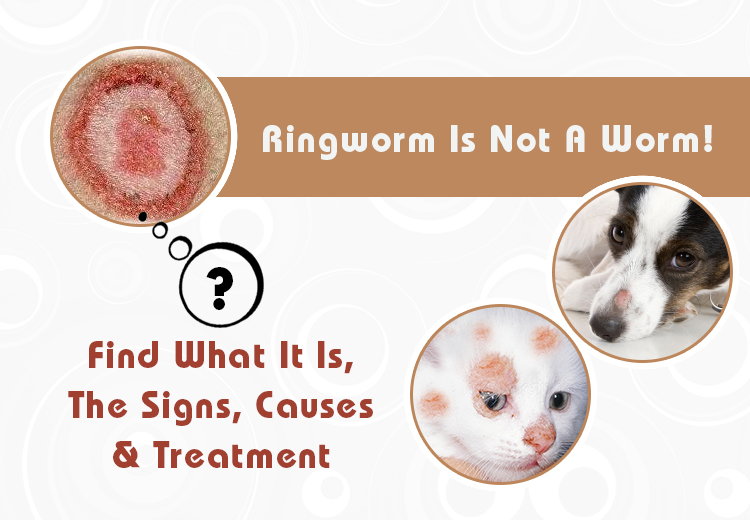Ringworm Is Not A Worm! Find What It Is, The Signs, Causes & Treatment
Although the name Ringworm has “worm” in it, it is not a worm. Ringworm is a fungal infection that affects the upper layer of the skin and hair. Dermatophyte is the name of the fungi responsible for causing ringworm in pets. It is highly contagious to pets as well as humans. In case your pet gets it, you may need to contact the vet immediately.
There may be many pet owners who must be completely unaware about the signs, causes and treatment of this fungal development in pets. Starting from how pets get ringworm to its treatments, here are some points that may throw light on these subjects and educate you on ringworm infection. Let’s have a look!
Ways in which your pet could catch ringworm!
Ringworm is a kind of infection that could transfer from animals to humans. So it is very important that you look out for this transmittable infection. Your pet may catch ringworm infection through:
- Soil
- Skin to skin contact with an infected person or another pet
- Using infected substances such as infected pet’s clothing, towels, furniture etc. for your pet.
The above three sources could be equally responsible for ringworm infection in people. Hence, watch out!
What are the symptoms of ringworm infection in cats and dogs?
Ringworm causes lesions which may be easily visible on human’s skin, but is difficult to see on pet’s body due to their fur coats. Therefore, in mild cases of ringworm infection in cats and dogs, you may not be able to notice anything at all. Severe cases may show the following symptoms in them:
- Occurrence of circular patches due to hair loss on head, ridge of the back or tail.
- Scaling of skin which may appear like dandruff.
- Thickening, crusting, reddening or scaling of the skin.
- Red lesions on chest, head, forelegs and ridge of the back.
What are the treatment options for ringworm?
There are numerous options to treat ringworm in canines and felines:
- Oral treatments: In severe cases of infection it is recommended to give oral anti-fungal tablets to pets. It is advised to continue with the treatment for at least 6 weeks and to not stop until told to. Separate your infected pet in case you have multiple pets.
- Topical treatments: Creams and ointments can be your option for mild ringworm infection in dogs and cats. You may need to apply the cream or ointment on the infected area as directed by the vet. In case your kitty or pooch has got a widespread infection then the vet may suggest anti-fungal shampoo.
- Keep Clean: As ringworm is a contagious infection and can be easily transmitted through a lose hair, it is advised to keep your home clean. Vacuum all the furniture and carpets that your pet uses.
This was all about ringworm infection. Make sure you take all the possible measures like cleanliness to protect your pets from this contagious infection. It is recommended to contact your vet as soon as you observe any of the above mentioned symptoms in your kitty or pooch.


